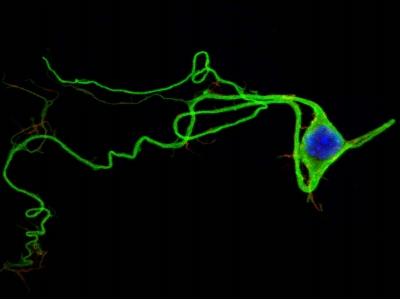
Cognitive science and literary criticism: reflections on first principles
An IASH/Susan Manning Workshop, with additional support from the Institute of Classical Studies.
Organiser: Michael Carroll (IASH)
Over the last two decades a growing number of scholars in the humanities have sought to demonstrate the benefits of applying the findings of cognitive science to literature, and the appearance in 2015 of The Oxford Handbook of Cognitive Literary Studies is just one sign that this general approach has begun to establish itself as a significant, if still relatively marginal, strand within literary studies. What this body of research has brought out, above all, is the extent to which literature exploits the same modes of thought that we rely on in everyday life, and as a result we now have a much better idea of how literary texts create meaning. A much-debated question, however, is whether cognitive approaches to literature can achieve more than this. Do the hypotheses of cognitive science merely provide an epistemological basis for literary effects that interpreters have long been sensitive to, or do they also have the potential to unlock new meaning in literary texts? Many scholars within cognitive literary studies have argued that cognitive approaches are more a matter of poetics – of studying the means by which works of literature communicate – than of hermeneutics. But as Terence Cave has argued in his 2016 book Thinking with Literature: Towards a Cognitive Criticism, mainstream literary specialists are unlikely to be convinced of the merits of adopting a cognitive approach unless it can be shown that they also result in stimulating new readings.
Although the question of the hermeneutic value of cognitive modes of literary analysis has often been raised by scholars, it has rarely been confronted directly and much work remains to be done on clarifying the terms of the debate. This interdisciplinary workshop will bring together researchers who work on texts from a variety of periods and draw on a range of different frameworks within cognitive science. Each speaker has been asked to address as explicitly as possible the issue of whether – and, if so, in what ways and to what extent – the tools and insights of cognitive science have the potential to support novel literary interpretations, and to structure their papers as far as possible around close readings of individual passages. Speakers may use these readings as a way of offering a direct comparison between the types of interpretation that result from a cognitive and non-cognitive modes of analysis, or to ground discussions of general issues such as the relationship between hermeneutics and poetics, the different types of interpretative response a cognitive approach might try to capture, or the question of what the choice between different cognitive theories really amounts to for the literary critic.
All are welcome and there is no registration fee or fee for lunch and coffee/tea. As places are limited, those who would like to attend are asked to register here. Abstracts here.
Any questions should be directed to (mjcarrol@tcd.ie).
Programme:
11.30-12.00: Coffee and tea
12.00-12.15: Introduction
12.15-13.15: Panel 1 – The experience of literature.
Chair: Miranda Anderson (Edinburgh)
12.15-12.25: Guillemette Bolens (Geneva) – ‘Understanding gestures and kinesic events’
12.25-12.35: Elspeth Jajdelska (Strathclyde) – ‘What can we learn about literature by analysing literary experience in a neural network frame?’
12.35-13.15: Discussion
13.15-14.00: Lunch
14.00-15.00: Panel 2 – Models of verbal meaning and literary style
Chair: Michael Carroll (IASH)
14.00-14.10: Peter Stockwell (Nottingham) – 'Not because they are easy, but because they are hard'
14.10-14.20: Max van Duijn (Leiden) – ‘Who does the mindreading, reader or narrator?’
14.20-15.00: Discussion
15.00-15.15: Break
15.15-16.15: Panel 3 – Cognitive science and the hermeneutics-poetics distinction
Chair: Douglas Cairns (Edinburgh)
15.15-15.25: Emily Troscianko (Oxford) – ‘Interpretation should be an object as well as a method of inquiry for literary studies’
15.25-15.35: Felix Budelmann (Oxford) – ‘Science or theory? Cognitive criticism between knowledge and readings’
15.35-16.15: Discussion
16.15-16.30: Break
16.30-17.00: Concluding discussion
17.00-17.45: Wine reception


